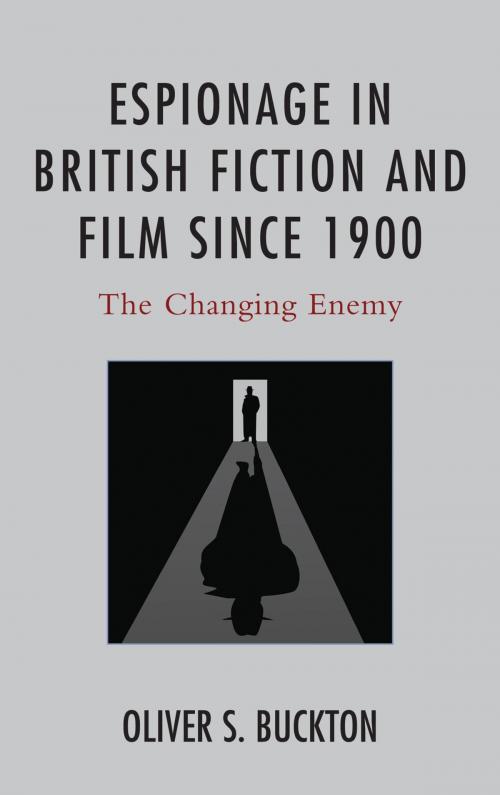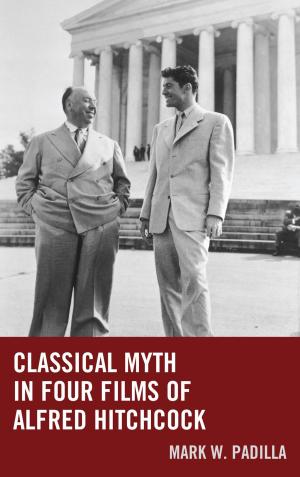Espionage in British Fiction and Film since 1900
The Changing Enemy
Fiction & Literature, Literary Theory & Criticism, British, Nonfiction, Social & Cultural Studies, Social Science, Cultural Studies, Popular Culture| Author: | Oliver Buckton | ISBN: | 9781498504843 |
| Publisher: | Lexington Books | Publication: | October 8, 2015 |
| Imprint: | Lexington Books | Language: | English |
| Author: | Oliver Buckton |
| ISBN: | 9781498504843 |
| Publisher: | Lexington Books |
| Publication: | October 8, 2015 |
| Imprint: | Lexington Books |
| Language: | English |
Espionage in British Fiction and Film Since 1900 traces the history and development of the British spy novel from its emergence in the early twentieth century, through its growth as a popular genre during the Cold War, to its resurgence in the early twenty-first century. Using an innovative structure, the chapters focus on specific categories of fictional spying (such as the accidental spy or the professional) and identify each type with a vital period in the evolution of the spy novel and film. A central section of the book considers how, with the creation of James Bond by Ian Fleming in the 1950s, the professional spy was launched on a new career of global popularity, enhanced by the Bond film franchise.
In the realm of fiction, a glance at the fiction bestseller list will reveal the continuing appeal of novelists such as John le Carré, Frederick Forsyth, Charles Cumming, Stella Rimington, Daniel Silva, Alec Berenson, Christopher Reich—to name but a few—and illustrates the continued fascination with the spy novel into the twenty-first century, decades after the end of the Cold War. There is also a burgeoning critical interest in spy fiction, with a number of new studies appearing in recent years. A genre that many believed would falter and disappear after the fall of the Berlin Wall and the collapse of the Soviet empire has shown, if anything, increased signs of vitality.
While exploring the origins of the British spy, tracing it through cultural and historical events, Espionage in British Fiction and Film Since 1900 also keeps in focus the essential role of the “changing enemy”—the chief adversary of and threat to Britain and its allies—in the evolution of spy fiction and cinema. The book concludes by analyzing examples of the enduring vitality of the British spy novel and film in the decades since the end of the Cold War.
Espionage in British Fiction and Film Since 1900 traces the history and development of the British spy novel from its emergence in the early twentieth century, through its growth as a popular genre during the Cold War, to its resurgence in the early twenty-first century. Using an innovative structure, the chapters focus on specific categories of fictional spying (such as the accidental spy or the professional) and identify each type with a vital period in the evolution of the spy novel and film. A central section of the book considers how, with the creation of James Bond by Ian Fleming in the 1950s, the professional spy was launched on a new career of global popularity, enhanced by the Bond film franchise.
In the realm of fiction, a glance at the fiction bestseller list will reveal the continuing appeal of novelists such as John le Carré, Frederick Forsyth, Charles Cumming, Stella Rimington, Daniel Silva, Alec Berenson, Christopher Reich—to name but a few—and illustrates the continued fascination with the spy novel into the twenty-first century, decades after the end of the Cold War. There is also a burgeoning critical interest in spy fiction, with a number of new studies appearing in recent years. A genre that many believed would falter and disappear after the fall of the Berlin Wall and the collapse of the Soviet empire has shown, if anything, increased signs of vitality.
While exploring the origins of the British spy, tracing it through cultural and historical events, Espionage in British Fiction and Film Since 1900 also keeps in focus the essential role of the “changing enemy”—the chief adversary of and threat to Britain and its allies—in the evolution of spy fiction and cinema. The book concludes by analyzing examples of the enduring vitality of the British spy novel and film in the decades since the end of the Cold War.















